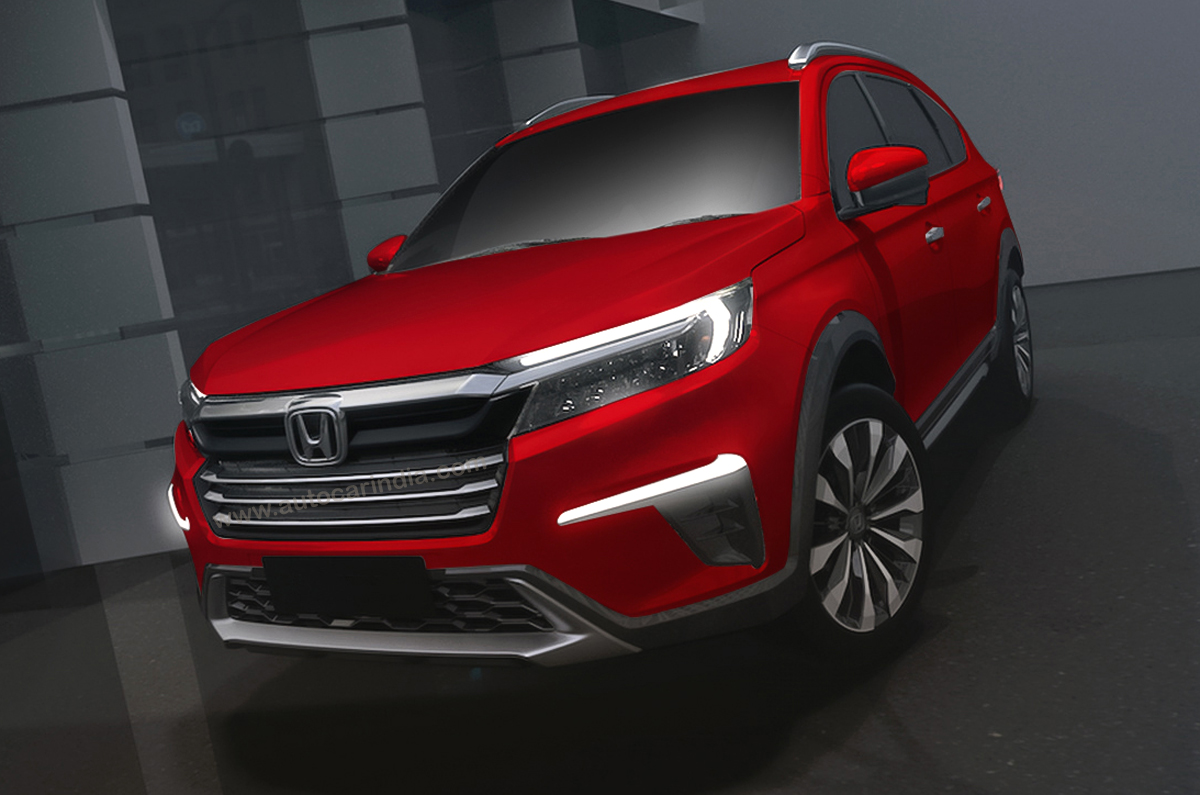
Honda’s SUV strategy has taken another twist. The Japanese major has decided to drop its plans to launch an all-new compact SUV based on the Amaze platform, in a favour of a larger, 4.3m-long, midsize SUV based on the City platform. In fact, Honda initially planned to bring the HR-V (code: 2XV) in 2019 and trial production had even started at the HCIL Greater Noida plant, but the company had a sudden change of heart. The arrival of the feature-packed MG Hector and Kia Seltos with their shock pricing spooked Honda, because with just 30 percent localisation, there was no way the HR-V could have profitably competed against its aggressive new rivals. This prompted the Japanese auto major to pull the plug on the HR-V at the last minute and instead concentrate on the development of an Amaze-based compact SUV with a 2022 launch timeline.
- Honda mid-size SUV could come in two- and three-row seating layouts
- Expected to carry over engine options from the Honda City
- Production SUV could be called the Honda Elevate
Compact SUV plan axed in favour of mid-size SUV
However, the compact SUV too has been dropped and, ironically, the midsize SUV is back on the table. Why the sudden flip-flop? The compact SUV segment, in a space of less than two years, has become overcrowded, with more than 10 models fighting for a piece of an increasingly fragmented pie. Honda’s compact SUV would be the 12th one, following the Tata HBX compact SUV (due later this year), and hence would have its work cut out against well-entrenched rivals.
In contrast, with only four serious players, the midsize SUV segment is far less crowded and in that sense it is easier to enter. More importantly, Honda went back to the drawing board to design and develop an SUV based on the City platform, which would give it an increased level of local content and a lower cost structure. This is all-new SUV (code: 31XA) is internally known as the S-SUV and is likely to be similar to the production version of the Honda N7X concept SUV revealed recently in Indonesia.
For India, there are talks of the S-SUV having two seating layouts, a five-seater to rival the likes of the Creta, Seltos, Hector, Harrier and Kicks, and a three-row version aimed at the Alcazar, Safari and the Hector Plus. While it’s too early to confirm, there are possibilities that the upcoming Honda three-row SUV for Indonesia could be the one headed to India as well. The company has recently registered the “Elevate” trademark in India, which could be the production-spec, three-row Honda SUV’s name in our market.
Expected to share engine options from the Honda City
Honda hopes to sell around 40,000 S-SUVs a year and has hence set tough cost targets to price it competitively against the Seltos and Creta. To keep a cap on costs, a localisation of over 90 percent is expected and key components from the City, like the pair of 1.5 petrol and 1.5 diesel, CVT gearbox and some suspension bits, will be carried over. To further save costs, the S-SUV will use the BR-V’s older electrical and electronic (E/E) architecture, but this could limit the number of electronic features and systems the new model can have.
Honda’s indecisive SUV strategy has cost the company dearly, which is languishing behind rivals that have stolen a march in what is the most lucrative and fastest growing wedge of the market. The move from a compact SUV to a midsize SUV has set the company back a whole year. The original timeline envisaged a 2022 launch for the compact SUV and now the midsize S-SUV won’t reach showrooms before September 2023. That’s a long wait for a company that has no SUV in its portfolio.
